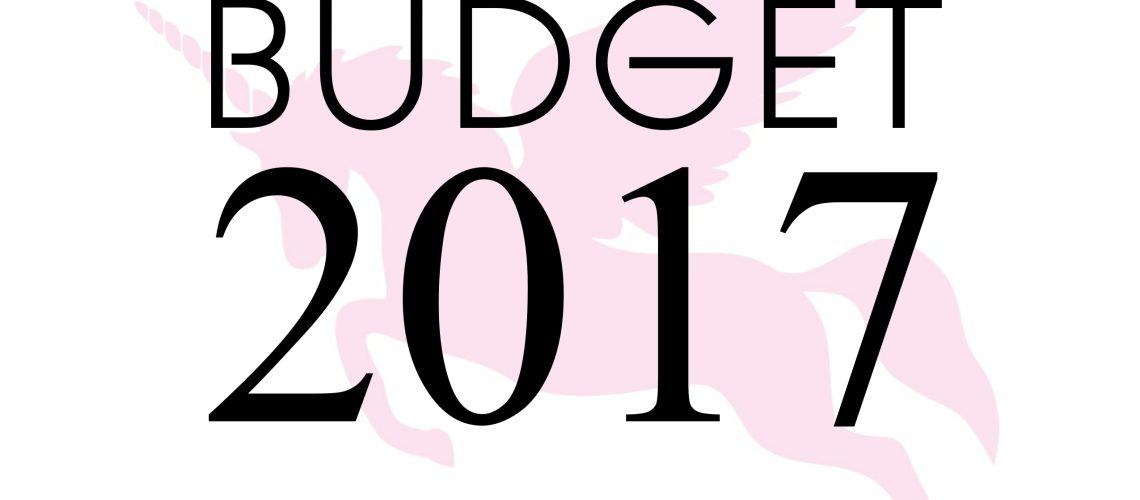This article is for information only and no recommendation is being made or should be construed from the contents of the article. Always seek independent financial advice prior to taking any action.
Today the Chancellor announced the Spring Budget and, as predicted, it was was relatively low-key with a large focus on businesses. This is not to say families won’t be affected in the short term as many of the changes proposed in last Autumn’s budget will come into effect from this April. To remind yourself of these, have a look at our previous Budget round up.
Spring Budget 2017 : The Key Points
- UK growth up this year
- Increase in taxes for the self-employed
- Tax free dividend allowance drops from £5,000 to £2,000 from April 2018
- Measures for business rates amount to a £435m cut, including a £1,000 cut for 90pc of pubs
- £2bn for social care, and £100m for new triage programmes at English hospitals next winter
Spring Budget 2017 : In more detail…
Growth
It was announced that UK Growth is up this year, in fact it was higher growth than previously forecast which hasn’t happened much in recent years. It goes against the predictions of gloom post Brexit, although the effects of leaving the EU are probably yet to be felt.
- Forecast of 2% growth for 2017, up from 1.4%.
- In 2018 growth forecast to be 1.6%, then 1.7% in 2019, 1.9% in 2020, and 2% in 2021.
- Previous forecasts were 1.4% for 2017, 1.7% for 2018, 2.1% in 2019, 2.1% in 2020 and 2% in 2021.
Borrowing
The borrowing figures are also an improvement on forecasted numbers. In November, borrowing was forecast at £59bn in 2017-18 but it has now come in at £58.3bn for 2017-18. However, the Chancellor did say that this will not lead to more spending and that austerity measures will remain.
Savers
A new government-backed savings product that was promised in November’s Autumn Statement was announced – it will be a NS&I bond paying 2.2% on three years will be available from April on savings up to £3,000.
The bond will be open to those aged 16 and over, subject to a minimum investment limit of £100 and a maximum investment limit of £3,000. Savers must lock in their money for three years.
‘National living wage’
This will rise to £7.50 an hour in April.
Personal tax allowances
As expected, the continuation of the coalition’s trend of raising the personal allowance to reduce income tax paid for all but the very highest earners means that the personal allowance will go up to £11,500 for basic-rate taxpayers, over 75% higher than in 2010.
Duties
The Sugar tax is a new ‘Sin Tax’ being introduced. Other Sin taxes such as cigarettes and alcohol have not been affected during this budget:
- Sugar tax set at 18 and 24 pence per litre.
- Freezing vehicle excise duty for hauliers and HGVs.
- New minimum excise duty on cigarettes.
- No changes on duties on alcohol and tobacco.
Tax avoidance
In a bid to stop the current unfairness in the tax system through tax avoidance schemes, there will new measures including added penalties on accountants who aid people in dodging their tax responsibilities:
- £820m of tax avoidance measures.
- VAT on roaming telecoms outside the EU.
- New financial penalty for professionals who create schemes defeated by HMRC.
- Stop businesses converting capital losses into trading losses.
Tax-free dividend allowance
Director shareholders will see a tax break reduced on the dividends they receive. The tax-free dividend allowance will be reduced from £5,000 to £2,000 from April 2018. This will also affect people with large portfolios of shares.
Business rates
To try and appease against the negative reaction to the recent changes in Business rates, the Chancellor announced three new measures for business rates in England amounting to a £435m cut:
- a cap so rates rise by no more than £50 a month for small businesses losing their rate relief
- pubs will get a £1,000 discount on business rates of less than £100,000 rateable value (90% of pubs)
- £300m fund for discretionary relief for local authorities
Small business tax
To support UK small businesses, there will be a delay of one year to the introduction of quarterly reporting for businesses below VAT registration threshold.
Self-employment
The self-employed will see their main National Insurance contribution rise in the next few years. It will increase from its current level of 9% to 10% in April 2018, and then to 11% in April 2019 for those earning more than £8,060. The level for employees is 12%. As previously announced in the last Budget, class 2 contributions – which has a lower threshold – will be abolished. These two changes will mean that only the self-employed with profits over £16,250 will have to pay more.
Women
- £20m fund to combat violence against girls.
- £5m for ‘returnships’ – helping people back into work after a career break.
- £5m for projects to celebrate the Representation of the People Act 1918.
Training
- £300m for 1,000 new PhD placements.
- £270m for disruptive technologies such as robotics and driverless vehicles (the ‘industrial strategy challenge fund’).
- A £16m 5G tech hub.
Education
· Funding of £320m for 110 new free schools to take the total to 500.
· Free school transport extended to children receiving free school meals at selective schools.
· £216m invested in school maintenance.
Careers
· Introduction of T-levels – technical qualifications, an alternative to A-levels – for 16- to 19-year-olds.
· £40m for pilots on lifelong learning projects.
Social care
· £2bn over the next three years for England.
NHS
· £325m of capital for the first of the new sustainability and transformation plans (STPs), intended to improve healthcare.
· £100m for 100 onsite GP treatment centres in A&Es in England.


